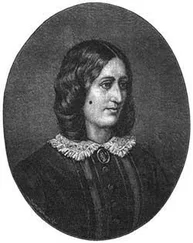Джордж Элиот - Scenes of Clerical Life
Здесь есть возможность читать онлайн «Джордж Элиот - Scenes of Clerical Life» — ознакомительный отрывок электронной книги совершенно бесплатно, а после прочтения отрывка купить полную версию. В некоторых случаях можно слушать аудио, скачать через торрент в формате fb2 и присутствует краткое содержание. Жанр: foreign_antique, Религиозная литература, foreign_religion, на английском языке. Описание произведения, (предисловие) а так же отзывы посетителей доступны на портале библиотеки ЛибКат.
- Название:Scenes of Clerical Life
- Автор:
- Жанр:
- Год:неизвестен
- ISBN:нет данных
- Рейтинг книги:5 / 5. Голосов: 1
-
Избранное:Добавить в избранное
- Отзывы:
-
Ваша оценка:
- 100
- 1
- 2
- 3
- 4
- 5
Scenes of Clerical Life: краткое содержание, описание и аннотация
Предлагаем к чтению аннотацию, описание, краткое содержание или предисловие (зависит от того, что написал сам автор книги «Scenes of Clerical Life»). Если вы не нашли необходимую информацию о книге — напишите в комментариях, мы постараемся отыскать её.
Scenes of Clerical Life — читать онлайн ознакомительный отрывок
Ниже представлен текст книги, разбитый по страницам. Система сохранения места последней прочитанной страницы, позволяет с удобством читать онлайн бесплатно книгу «Scenes of Clerical Life», без необходимости каждый раз заново искать на чём Вы остановились. Поставьте закладку, и сможете в любой момент перейти на страницу, на которой закончили чтение.
Интервал:
Закладка:
'Now, my little Jet,' she said, putting him down gently on the hearth-rug, 'you shall have a nice, nice breakfast.'
Jet indicated that he thought that observation extremely pertinent and well-timed, by immediately raising himself on his hind-legs, and the Countess emptied the cream-jug into the saucer. Now there was usually a small jug of milk standing on the tray by the side of the cream, and destined for Jet's breakfast, but this morning Nanny, being 'moithered', had forgotten that part of the arrangements, so that when the Countess had made her tea, she perceived there was no second jug, and rang the bell. Nanny appeared, looking very red and heated—the fact was, she had been 'doing up' the kitchen fire, and that is a sort of work which by no means conduces to blandness of temper. 'Nanny, you have forgotten Jet's milk; will you bring me some more cream, please?'
This was just a little too much for Nanny's forbearance. 'Yes, I dare say. Here am I wi' my hands full o' the children an' the dinner, and missis ill a-bed, and Mr. Brand a-comin'; and I must run o'er the village to get more cream, 'cause you've give it to that nasty little blackamoor.'
'Is Mrs. Barton ill?'
'Ill—yes—I should think she is ill, an' much you care. She's likely to be ill, moithered as she is from mornin' to night, wi' folks as had better be elsewhere.'
'What do you mean by behaving in this way?'
'Mean? Why I mean as the missis is a slavin' her life out an' a-sittin' up o'nights, for folks as are better able to wait of her , i'stid o' lyin' a-bed an' doin' nothin' all the blessed day, but mek work.'
'Leave the room and don't be insolent.'
'Insolent! I'd better be insolent than like what some folks is,—a-livin' on other folks, an' bringin' a bad name on 'em into the bargain.'
Here Nanny flung out of the room, leaving the lady to digest this unexpected breakfast at her leisure.
The Countess was stunned for a few minutes, but when she began to recall Nanny's words, there was no possibility of avoiding very unpleasant conclusions from them, or of failing to see her position at the Vicarage in an entirely new light. The interpretation too of Nanny's allusion to a 'bad name' did not lie out of the reach of the Countess's imagination, and she saw the necessity of quitting Shepperton without delay. Still, she would like to wait for her brother's letter—no—she would ask Milly to forward it to her—still better, she would go at once to London, inquire her brother's address at his banker's, and go to see him without preliminary.
She went up to Milly's room, and, after kisses and inquiries, said—'I find, on consideration, dear Milly, from the letter I had yesterday, that I must bid you good-bye and go up to London at once. But you must not let me leave you ill, you naughty thing.'
'Oh no,' said Milly, who felt as if a load had been taken off her back, 'I shall be very well in an hour or two. Indeed, I'm much better now. You will want me to help you to pack. But you won't go for two or three days?'
'Yes, I must go to-morrow. But I shall not let you help me to pack, so don't entertain any unreasonable projects, but lie still. Mr. Brand is coming, Nanny says.'
The news was not an unpleasant surprise to Mr. Barton when he came home, though he was able to express more regret at the idea of parting than Milly could summon to her lips. He retained more of his original feeling for the Countess than Milly did, for women never betray themselves to men as they do to each other; and the Rev. Amos had not a keen instinct for character. But he felt that he was being relieved from a difficulty, and in the way that was easiest for him. Neither he nor Milly suspected that it was Nanny who had cut the knot for them, for the Countess took care to give no sign on that subject. As for Nanny, she was perfectly aware of the relation between cause and effect in the affair, and secretly chuckled over her outburst of 'sauce' as the best morning's work she had ever done.
So, on Friday morning, a fly was seen standing at the Vicarage gate with the Countess's boxes packed upon it; and presently that lady herself was seen getting into the vehicle. After a last shake of the hand to Mr. Barton, and last kisses to Milly and the children, the door was closed; and as the fly rolled off, the little party at the Vicarage gate caught a last glimpse of the handsome Countess leaning and waving kisses from the carriage window. Jet's little black phiz was also seen, and doubtless he had his thoughts and feelings on the occasion, but he kept them strictly within his own bosom.
The schoolmistress opposite witnessed this departure, and lost no time in telling it to the schoolmaster, who again communicated the news to the landlord of 'The Jolly Colliers', at the close of the morning school-hours. Nanny poured the joyful tidings into the ear of Mr. Farquhar's footman, who happened to call with a letter, and Mr. Brand carried them to all the patients he visited that morning, after calling on Mrs. Barton. So that, before Sunday, it was very generally known in Shepperton parish that the Countess Czerlaski had left the Vicarage.
The Countess had left, but alas, the bills she had contributed to swell still remained; so did the exiguity of the children's clothing, which also was partly an indirect consequence of her presence; and so, too, did the coolness and alienation in the parishioners, which could not at once vanish before the fact of her departure. The Rev. Amos was not exculpated—the past was not expunged. But what was worse than all, Milly's health gave frequent cause for alarm, and the prospect of baby's birth was overshadowed by more than the usual fears. The birth came prematurely, about six weeks after the Countess's departure, but Mr. Brand gave favourable reports to all inquirers on the following day, which was Saturday. On Sunday, after morning service, Mrs. Hackit called at the Vicarage to inquire how Mrs. Barton was, and was invited up-stairs to see her. Milly lay placid and lovely in her feebleness, and held out her hand to Mrs. Hackit with a beaming smile. It was very pleasant to her to see her old friend unreserved and cordial once more. The seven months' baby was very tiny and very red, but 'handsome is that handsome does'—he was pronounced to be 'doing well', and Mrs. Hackit went home gladdened at heart to think that the perilous hour was over.
Chapter 8
The following Wednesday, when Mr. and Mrs. Hackit were seated comfortably by their bright hearth, enjoying the long afternoon afforded by an early dinner, Rachel, the housemaid, came in and said,—'If you please 'm, the shepherd says, have you heard as Mrs. Barton's wuss, and not expected to live?'
Mrs. Hackit turned pale, and hurried out to question the shepherd, who, she found, had heard the sad news at an ale-house in the village. Mr. Hackit followed her out and said, 'Thee'dst better have the pony-chaise, and go directly.'
'Yes,' said Mrs. Hackit, too much overcome to utter any exclamations.
'Rachel, come an' help me on wi' my things.'
When her husband was wrapping her cloak round her feet in the pony-chaise, she said,—'If I don't come home to-night, I shall send back the pony-chaise, and you'll know I'm wanted there.'
'Yes, yes.'
It was a bright frosty day, and by the time Mrs. Hackit arrived at the Vicarage, the sun was near its setting. There was a carriage and pair standing at the gate, which she recognized as Dr Madeley's, the physician from Rotherby. She entered at the kitchen door that she might avoid knocking, and quietly question Nanny. No one was in the kitchen, but, passing on, she saw the sitting-room door open, and Nanny, with Walter in her arms, removing the knives and forks, which had been laid for dinner three hours ago.
'Master says he can't eat no dinner,' was Nanny's first word. 'He's never tasted nothin' sin' yesterday mornin', but a cup o' tea.'
Читать дальшеИнтервал:
Закладка:
Похожие книги на «Scenes of Clerical Life»
Представляем Вашему вниманию похожие книги на «Scenes of Clerical Life» списком для выбора. Мы отобрали схожую по названию и смыслу литературу в надежде предоставить читателям больше вариантов отыскать новые, интересные, ещё непрочитанные произведения.
Обсуждение, отзывы о книге «Scenes of Clerical Life» и просто собственные мнения читателей. Оставьте ваши комментарии, напишите, что Вы думаете о произведении, его смысле или главных героях. Укажите что конкретно понравилось, а что нет, и почему Вы так считаете.










